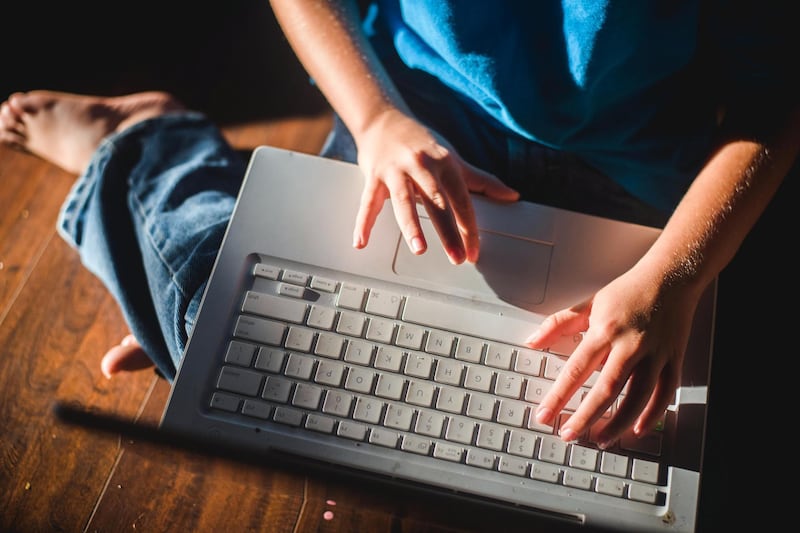We live today in a world that is increasingly digital. More than 50 per cent of the UAE population were born into this digital age, and we are the number-one nation around the world when it comes to people accessing the internet, at 98 per cent. People in the UAE spend an average of eight hours per day online. In our efforts to continually improve the wellbeing of UAE citizens, it is critical that we focus on improving the quality of our digital lives, and safety is at the heart of that digital wellbeing.
Technological advances today are exciting, promising, and their spread and integration in our lives are good for our country, as we continue to take a global leadership position in the 21st century. The future has a lot of promise and benefits, especially for our children. The internet provides them with a wonderful world that can help them to develop, learn and interact. They can use it to research school reports, communicate with teachers and other kids, and learn new skills. It helps them learn faster, access information on any topic, be more curious and creative, and answers many of their questions. It can provide printable templates of historical buildings or famous paintings to learn about, and can allow them to virtually visit different parts of the world, learn new cultures, play games that expand their minds, and stay in touch with friends and family.
However, this digital age also comes with many risks. Children can be subjected to inappropriate content, cyberbullying and online predators. Using applications and websites where kids interact, predators may pose as a child or teen looking to make a new friend. They might prod the child to exchange personal information, such as addresses and phone numbers, or encourage kids to call them and access their phone number via caller ID. Extensive exposure to violent games may also push vulnerable players to act out behaviour observed in those games. Parents around the world are concerned about children sharing their personal information with strangers online, as we have all read recent stories about online games that have unimaginable and dark consequences, some of which not only harm the players themselves, but other victims in the real world. In addition to these digital dangers, what our children do online today will have a major impact on their future lives and digital identity.
The pace of change is so fast that most parents and carers are not keeping up. In the UAE today, 34 per cent of parents say that they allow their children to go online without supervision, and more than 60 per cent do not set any parental controls on devices to limit children’s access and exposure. Children are out there in the digital world, with all its dangers, without protection or supervision.
We need to act collectively to address these challenges. Children who are allowed to go online by themselves should be informed about basic computer safety. If they are at an age that is too young to be educated about that, their online activity should be closely monitored, with strict parental control options set on devices. Parents need to be aware of what their children see and hear on the internet, who they meet, and what they share about themselves. They should talk with their children, use tools to protect them, and keep an eye on their activities. Our children’s safety and wellbeing is critical for our future as a nation.
As a government, we are taking action led by our Ministry of Interior, in collaboration with the National Programme for Happiness and Wellbeing. This is at the heart of the UAE National Framework for Wellbeing, one component of which focuses on enhancing digital wellbeing and cultivating positive digital communities.
Within that framework, we are building ways and means to look after our children’s digital wellbeing. We will educate them, enable them, and support their parents and teachers. We will integrate online safety and wellbeing in our children’s digital lives from an early age. We will work with schools, carers, technology companies, traditional and social media influencers, and all the relevant government ministries. We will reach children online and face to face. Not only will we focus on their online safety, but we will also instil in them positive digital values and behaviours that enforce good global citizenship, respect and tolerance.
Our children are the future of our nation. Investing in their safety and wellbeing is investing in our future.
Ohood Al Roumi is Minister of State for Happiness and Wellbeing





